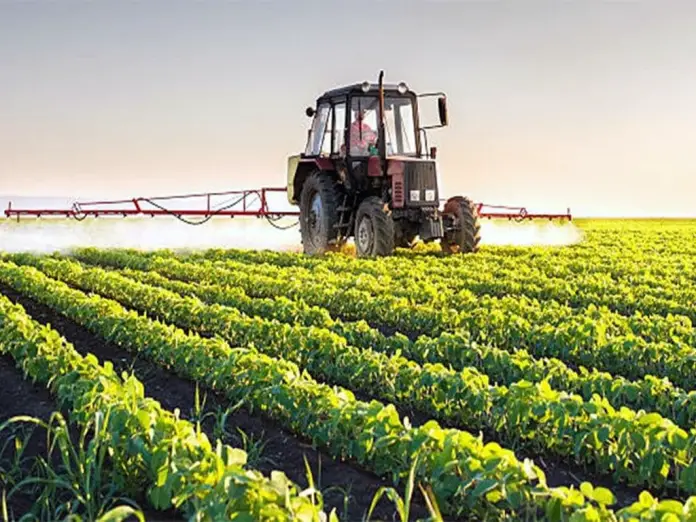Pakistan, an agricultural country grappling with severe economic challenges, must urgently recognize the significance of agricultural farming. To stabilize its economy, it is crucial to learn from the progress and methods employed in agricultural farming by developed nations. Presently, Pakistan lags behind in modern agricultural practices, resulting in the depletion of agricultural land due to a lack of policies and controls. The alarming conversion of agricultural land into residential areas needs to be halted. Despite Pakistan’s vast agricultural land, a considerable portion remains barren, requiring attention. In contrast, these barren lands are wisely utilized for agricultural farming worldwide, but Pakistan has not given them sufficient consideration except for a few institutions.
Agriculture forms the backbone of Pakistan’s economy, with nearly 60 percent of the country’s income directly linked to it. Given that over 60 percent of the population resides in villages, it is evident why agriculture plays such a crucial role in the nation’s economy. Notably, Pakistan ranks among the top ten countries globally in the production of wheat, rice, cotton, sugarcane, potatoes, onions, and tomatoes.
However, being an agricultural country raises the question of whether Pakistan is agriculturally self-sufficient. True food independence can only be achieved when a country produces more agricultural commodities than its population requires, without relying on imports. Unfortunately, despite its agricultural status, Pakistan has not attained self-sufficiency in agriculture. The country still imports wheat, pulses, and other agricultural products, a matter that warrants serious contemplation. For instance, even though Ukraine is smaller in size than Pakistan, it has become the “warehouse of the world” by supplying wheat globally. This disparity demands thoughtful consideration from the authorities.
Moreover, Pakistan’s population is steadily increasing, leading to a natural rise in food requirements. The absence of modern scientific methods in agricultural farming is a significant reason why Pakistan falls short of becoming self-sufficient in wheat production. While Pakistani farmers yield around 30 maunds of wheat per acre, their counterparts in America and China harvest 60 to 70 maunds per acre. This disparity is not due to the quality of the land or the farmers’ hard work, but rather the result of modern agricultural practices employed in other countries.
Pakistan’s economic stability and food security depend heavily on the adoption of modern agricultural farming techniques. By learning from developed nations and making necessary policy changes, Pakistan can revitalize its agricultural sector and pave the way towards self-sufficiency in food production. Critically addressing these issues will help Pakistan harness the full potential of its agricultural resources and secure a prosperous future for its citizens.
In Pakistan, a new trend of corporate agricultural farming has emerged, with Punjab taking the lead by handing over 45,267 acres of state lands to the Pakistan Army for this purpose. This move is expected to open up new horizons for the agriculture sector in the country. The allocated lands, comprising various plots, were officially handed over to the Army on different dates in March 2023.
These lands were largely barren, ancient, and uninhabited. To make them cultivable, the Punjab government has temporarily entrusted the Army with the task through a joint venture. However, it’s important to note that the possession and ownership of these lands will remain with the Punjab government.
This step comes as a response to challenges faced by Pakistan’s agricultural sector, such as inadequate land reforms, ineffective agricultural policies, climate change impacts, and population growth. Over the years, the annual growth rate of the agriculture sector in Pakistan’s economy has declined from 4 percent in 1960 to 2.5 percent in 2022.
To address this situation, the Punjab government has devised a plan to rejuvenate the agricultural sector, enlisting the support of the Pakistan Army. The primary role of the Army in this project will be to provide a coherent administrative structure. Actual project implementation and agricultural activities will be carried out by the local population, allowing them to earn a livelihood close to their homes.
The project aims to turn the barren lands into cultivable ones and increase production on low-yielding lands. This will be achieved through the utilization of modern agricultural methods, machinery, and high-quality seeds, leading to a manifold increase in agricultural production.
As part of the agreement, 40 percent of the revenue generated from the crops will go to the Punjab government, while 20 percent will be allocated to modern research and development in the agriculture sector. The remaining 40 percent will be reinvested in the next crop and the expansion of the project. The government expects the project to generate substantial revenue for the provincial government within a few months. Notably, the Pakistan Army will not receive any revenue share from this initiative.
Drawing from the Army’s past experiences in various nationwide projects, such as the construction and expansion of the Karakoram highway, canal cleaning, WAPDA duties, Reko Diq planning, polio campaigns, election security, and more, it is believed that the Army’s involvement in agricultural farming can bring significant benefits to the country’s economy.
In addition to its primary security responsibilities, the Pakistan Army has demonstrated its capability in efficiently conducting agricultural farming. By leveraging the Army’s expertise and experience in this area, the burden of economic difficulties can be alleviated, and unemployment can be reduced. The Pakistan Army stands ready to answer the call of the Government of Pakistan, just as it has always been at the forefront of sacrificing for the nation during challenging times.
In July 2023, the Land Information and Management System – Center of Excellence (LIMS – COE) was inaugurated by Prime Minister Shehbaz Sharif. The ceremony was graced with the presence of Chief of Army Staff (COAS) General Syed Asim Munir.
The LIMS is a project of the government of Pakistan and Pakistan Army to promote agriculture and the use of technology for better productivity and efficiency. This step will revolutionize the agriculture in Pakistan.







